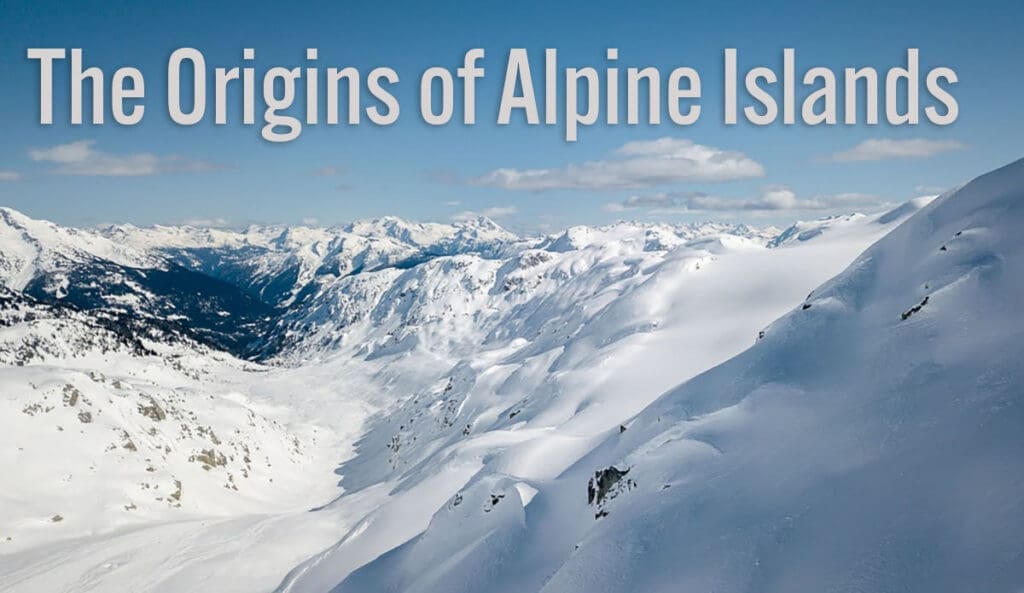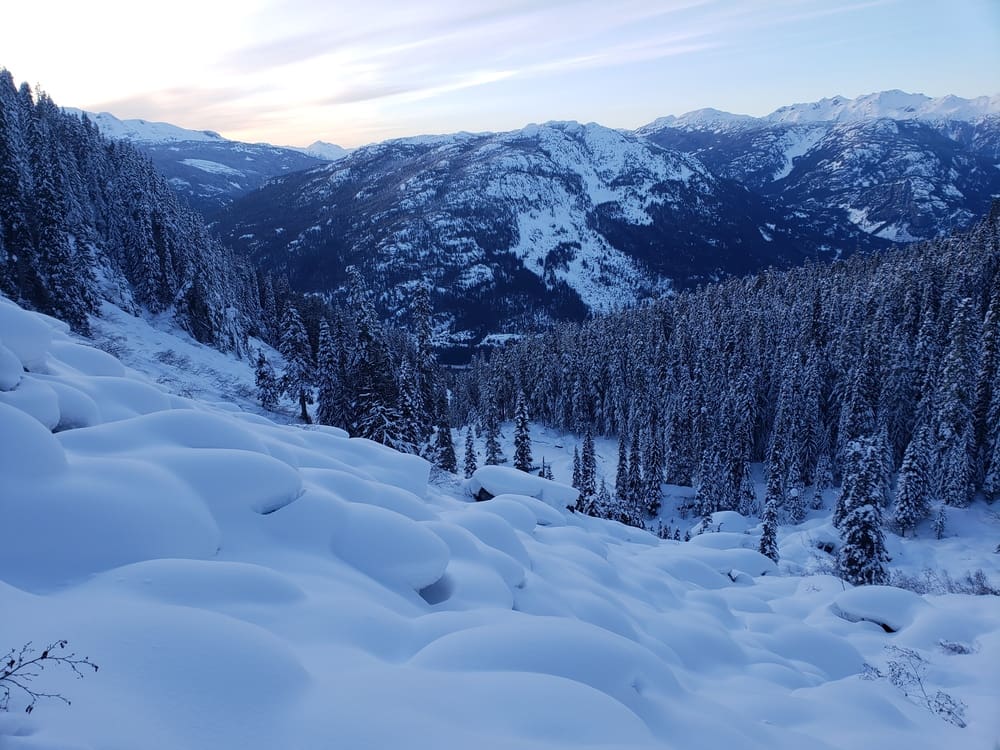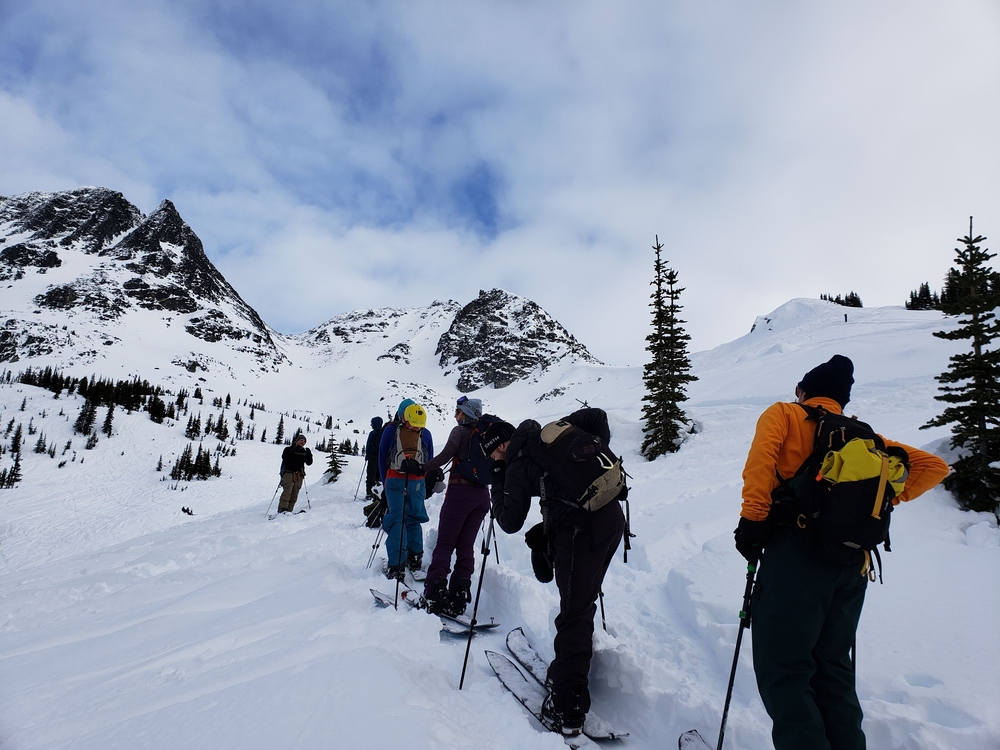Every adventure has its first step.
There is always a key moment when you finally set forth, looking forward, prepared as you can be but with the understanding that you’re not in control.
This is that moment for Alpine Islands. No longer an idea, but a concrete effort to move ahead and materialize what has been formulating for many years. It has humble, heartfelt intention behind it to change the idea of backcountry education for the better, to help more people than are currently being helped under the current framework that exists today.
That is not to say that certain methods and systems currently in effect aren’t great. I’d be lying if I said that I haven’t benefitted from the mentorship and guidance that those more experienced than I have given me. I’m eternally thankful.
But I also believe that the general idea of backcountry education misses the mark. It’s too westernized, devoted to institutions and external validation rather than internal mastery.
The Problem With Backcountry Education Today
There are two main avenues to get mentorship in the mountains these days: Hiring a guide, or hiring an instructor.
A guide is trusted for their knowledge and experience, and has taken a long, arduous process to get to the level they are. Many people equate the journey to becoming a certified guide similar to gaining a master’s degree. Several organizations exist but the gold standard is in the IFMGA and its national affiliates such as the AMGA in the USA and the ACMG in Canada. These organizations are known for their rigorous training and testing program where up to half of applicants will initially fail the exam, leaving only a select few to earn their pin each year.
There is much to admire about the people who dedicate their career to becoming a ski guide or full mountain guide (ski, rock, and alpine). The process is long and arduous and they don’t let just anyone get in. But the problem is that if you are taking a guide out every single time you are heading out, you will go broke pretty soon. So unless you are in a very small financial bracket, getting consistent mentorship from a guide (unless they are a very patient friend or partner of yours) is mostly out of the question.
The other route is to get instruction, which is what the majority of people do. Many instructors are also guides themselves, and if you are going for the highest level of instruction, you will also be training to become a guide since they offer the most in-depth education available. However, the courses themselves are also expensive, and only go so far. Knowledge is one thing, but putting that knowledge into practice, repeated over time, is how you truly develop a skill.
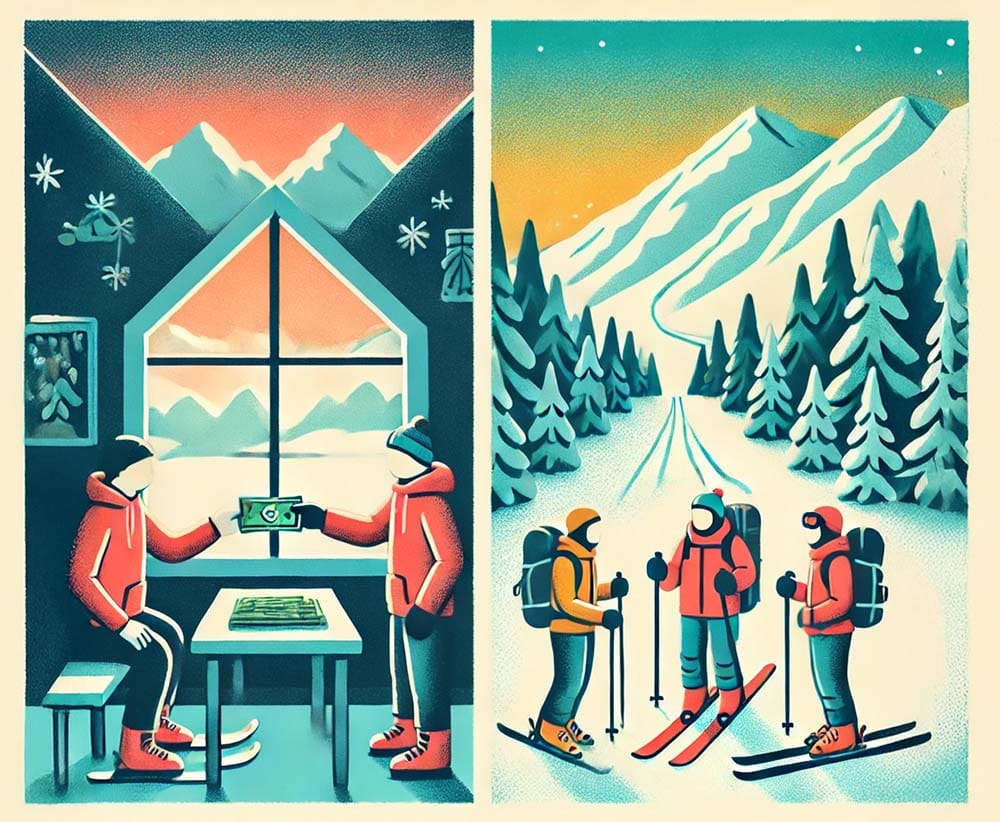
How Alpine Islands Addresses The Problem
Alpine Islands is a club-based program where the members help one another on the path to mastery. In nature, no one is truly a master and those of us who want to live a long life must humbly submit to her power. But that can’t stop us from pursuing our best with that in mind, which will inevitably lead us to expanding the limits within ourselves and our environments.
The whole premise is based on taking out the transactional nature of information, such as gaining a certificate at the end of the weekend to get up to speed. From many people we’ve talked to over the years, this mindset on education neglects the consistency needed for skills to stay sharp and the curiosity necessary to learn every day, whether a beginner or seasoned vet.
Through weekly community check-ins, skill-focused workshops, and real-time feedback, Alpine Islands provides the mentorship and consistency that builds mastery. It’s not about certificates or one-off courses; it’s about the journey of becoming a well-rounded backcountry athlete.
Incorporating Martial Arts into the Backcountry
Inspired by martial arts, Alpine Islands’ progression system emphasizes long-term growth through mentorship, practice, and discipline. Eastern philosophy teaches that consistent effort over time compounds exponentially over the years, leaving a path to mastery that relies on one’s discipline and will to determine a successful outcome. Everyone arrives to the discipline as a beginner.
While there will are measurable benchmarks along the way to know how far you’ve come, one weekend course is simply not enough to say that you know what is happening. And that’s what we bring to the table.
A Fluid Curriculum
Instead of having a set agenda for the day we work on different skills that suit the conditions and the people who are present. Practice drills will be consistent; however the main focus will be on whatever lesson presents itself.
Is this a bit too nebulous for our capitalistic, transactional world in 2025? I would argue that this is exactly what our world needs. The end goal of Alpine islands is for more people to spend time in nature, feeling confident and having fun. Nature doesn’t set agendas or run off of a calandar, and we would argue that humans aren’t supposed to either. We do have the power to change. If that happens on a large scale we might be able to help influence our society toward better mental and physical health, as well as a greater sense of connection to the world that surrounds us.
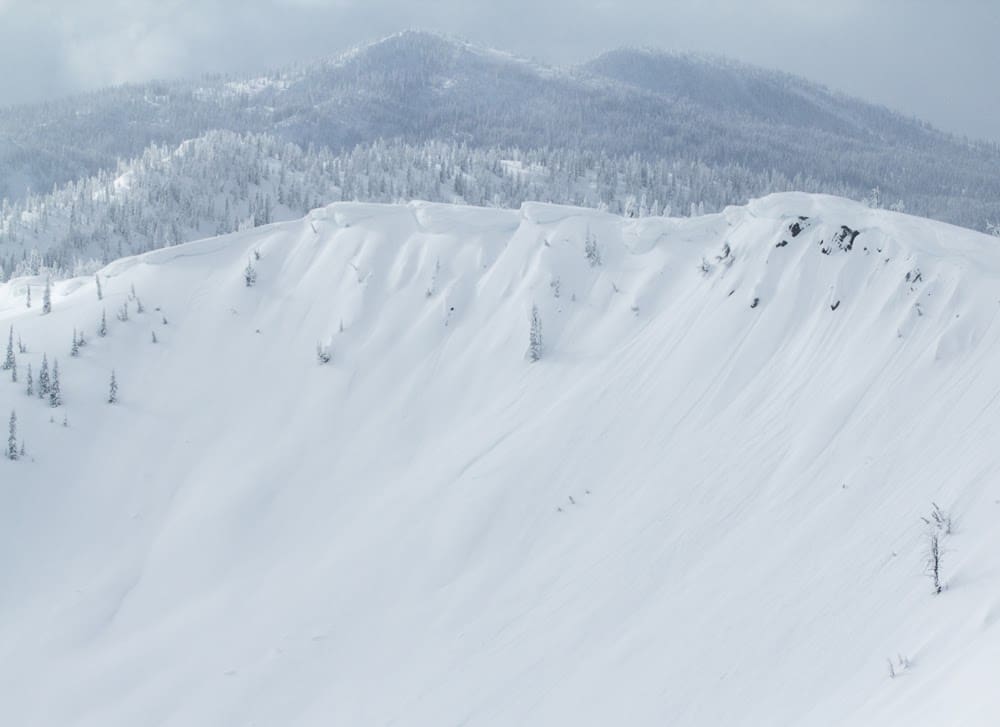
Not Just An Avalanche Course
Many people starting out in winter backcountry sports will take an avalanche course to start out, which is without a doubt a good idea. But avalanche safety is but only one component of what makes someone a good backcountry athlete. Mental fortitude, calm nerves, and teamwork are essential, as well as many other skills that can often go unnoticed.
On one day, members might focus on terrain navigation in high winds. On another, they might learn to manage mental focus in a whiteout. This approach ensures members are always learning the most relevant skills with immediate feedback on real-world conditions.
Too often are courses held in hypothetical situations: A crevasse rescue course in a climbing gym, or a first-aid course with nothing but sterilized medical equipment handy. Our workshops will deal with the here and now, which ultimately is the best way to learn.
We will always be mindful of the snowpack and snow conditions, but not let tunnel vision on snow safety alone cause us to neglect other hazards. By tuning into our awareness across other areas of being safe, the avalanche safety will be a major piece of a much larger puzzle. This is why we require a minimum commitment for people to join – it’s not the type of program that can succeed with one-offs. Consistent practice is the only road to success.
Join The Club
If you’re ready to move beyond traditional backcountry education and embrace a community-driven path to mastery, join Alpine Islands today.
Help us shape the entire process by taking the survey. After that, please sign up for updates using the form below and we will keep you in the loop as this continues to take shape.
Together, we’ll redefine what it means to explore the mountains.
Registration is free!
